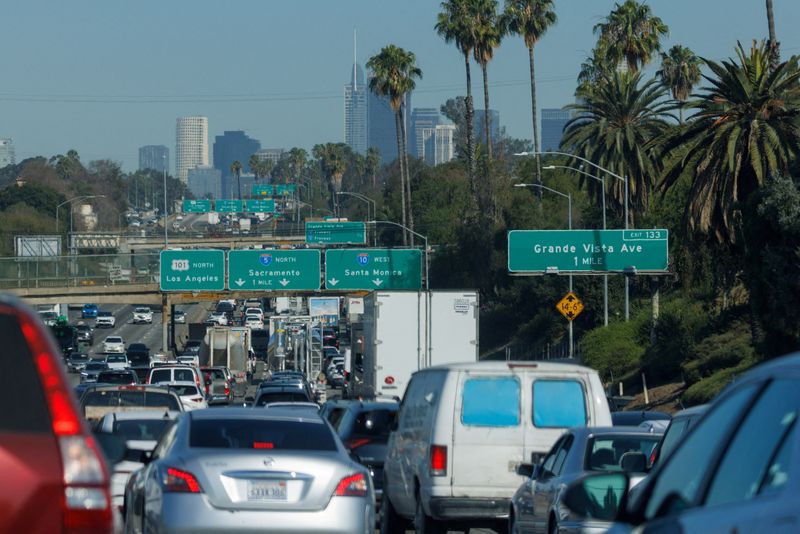(Reuters) -California regulators voted on Friday to strengthen a policy aimed at encouraging low-carbon fuels to reduce greenhouse gas emissions from the transportation sector and meet state climate change goals, despite criticism that it would would increase retail fuel prices.
The 14-member California Air Resources Board voted 12-2 to approve changes to the state’s influential Low Carbon Fuel Standard (LCFS). The vote followed nearly eight hours of testimony from supporters and opponents of the program, as well as a lengthy debate among board members.
Several members said the changes were essential to maintaining Democratic-led climate leadership in California following Donald Trump’s presidential victory. Trump, a Republican, has pledged to revoke California’s ability to set its own vehicle emissions rules, as he did during his first term as US president.
“The world is looking to California to see whether we will maintain leadership or break under internal pressure for perfectionism,” says Senator Henry Stern (AS:), a non-voting board member, in a statement read during the meeting by fellow board member Hector De La Torre.
“California has a long history of implementing visionary and affordable climate policies that are sustainable enough to withstand major shifts in national politics, as we just saw.”
The changes to the LCFS, in place since 2011, would require deeper reductions in the carbon intensity of transportation fuels by 2030 so fuel producers can earn the program’s tradable credits.
Transportation is responsible for about 50% of the state’s greenhouse gas emissions.
While biofuel producers and some state climate advocates supported the changes, critics, including oil companies and consumer activists, said the change would raise gasoline costs for Californians. Environmental groups also argued that the policy would expand oil and gas production and prioritize fuels made from food crops and large dairies rather than encouraging a transition to electric vehicles.
The LCFS requires fuel manufacturers to purchase tradable credits if their products generate more carbon emissions than a baseline set by regulators at the Air Resources Board. Refineries that produce low-carbon fuels and gases can generate the credits to sell.
The policy has fueled a boom in renewable diesel and biogas production in recent years, pushing credit prices down from over $200 in 2020 to around $70. The policy revisions are intended to boost credit prices and encourage more production of low-carbon fuels.
As a result of the board’s vote, the LCFS will require a 30% reduction in the carbon intensity of transportation fuels by 2030, up from 20%. The revisions will add a target of 90% reduction in carbon intensity by 2045.
Developers of projects that produce renewable fuels from organic waste supported the measures.
Opponents, however, raised concerns about the potential for higher gasoline prices.

In an analysis published last year, the administration said the changes could increase the price of gasoline by an average of 37 cents per gallon between 2024 and 2030. But the board has since said models cannot accurately predict future fuel prices.
The board’s internal environmental justice advisory committee had urged the board to reject the revisions, citing, among other things, an exemption for jet fuel producers and large subsidies for methane projects in the dairy sector.


